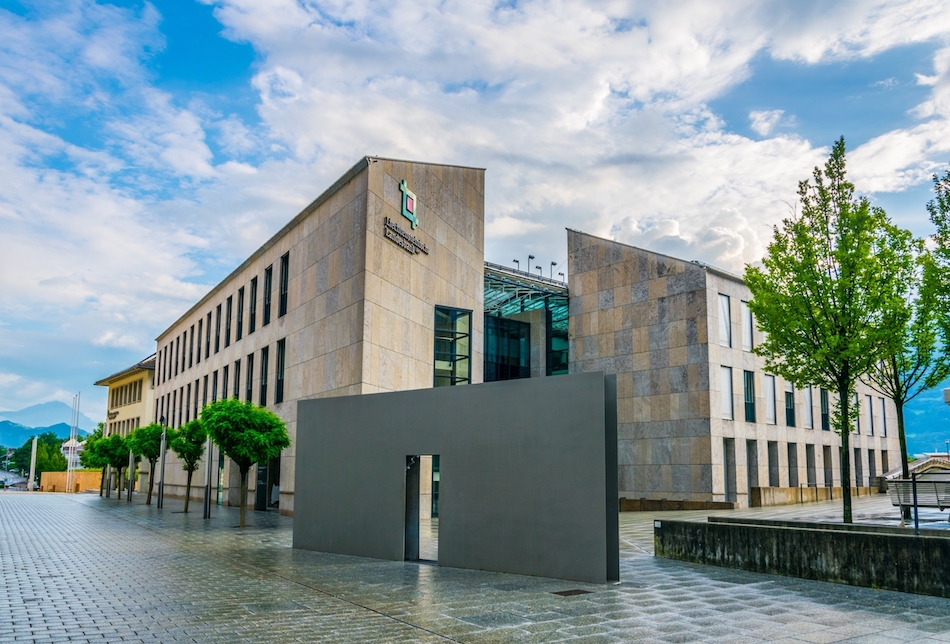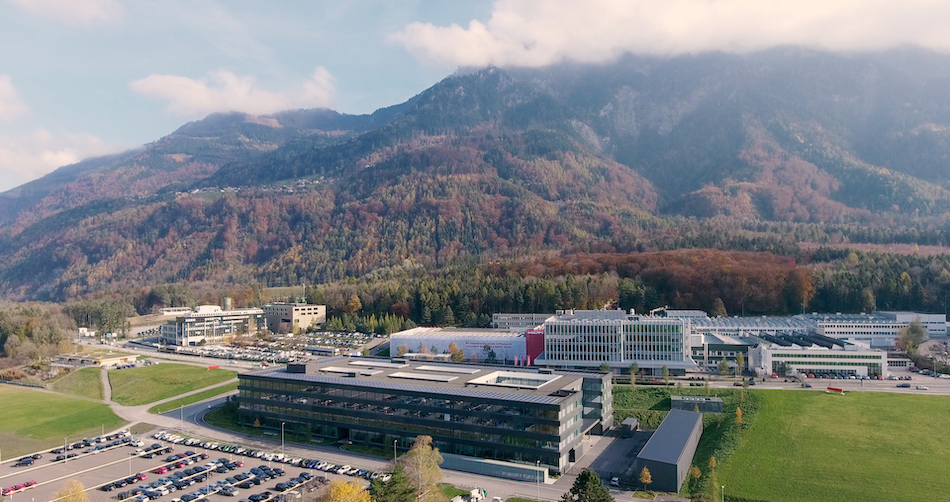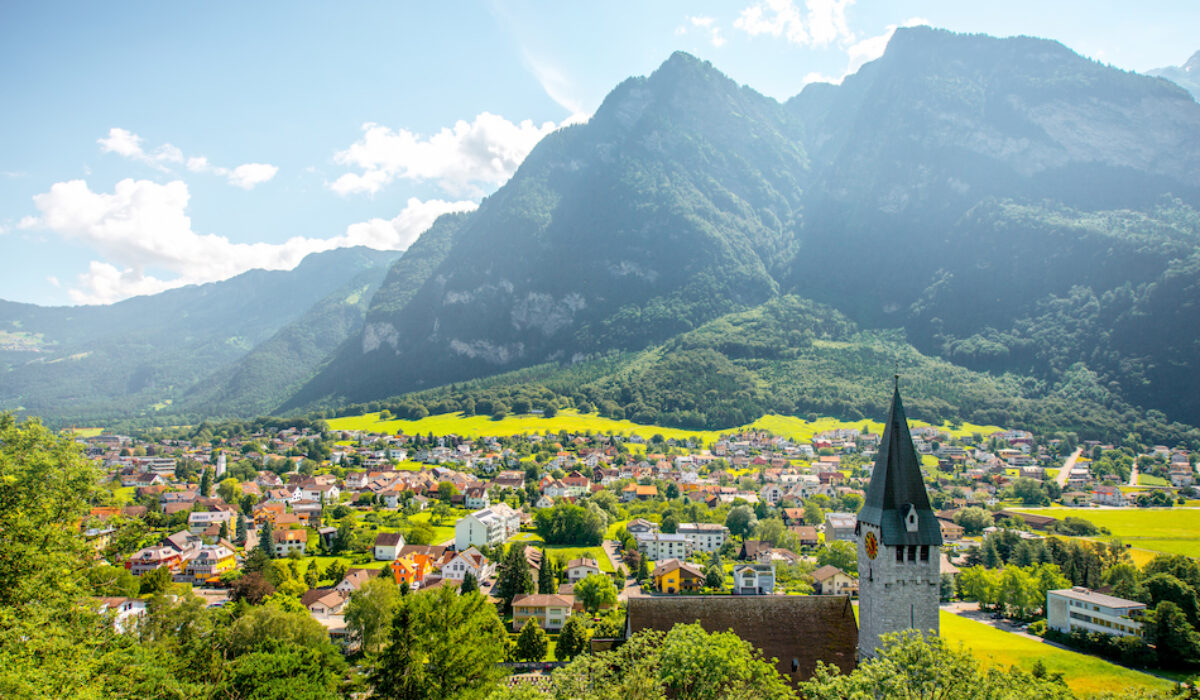Sizing Up
Liechtenstein, the world’s sixth-smallest state may go unnoticed on a map and has never played a significant role in history books, but one of the safest countries in Europe is finally getting its time in the spotlight.
With a population of about 38,000, Liechtenstein lies in the heart of the Alps that is neither Switzerland nor Austria, but somewhere very special in between. The country’s small territory – a miniature 160-km²- is in fact a big advantage.
Liechtenstein is a very affluent principality, currently 40% of its gross domestic product (GDP) is generated through the industrial sector and 24% through financial services. In recent years, Liechtenstein has transformed itself into a legitimate financial centre, and in conjunction with banks, insurers and professional trustees, it covers fund companies, asset managers and several public-benefit foundations. The last two decades have been a particularly dynamic period for the Liechtenstein financial centre, with the number of banks increasing from 3 to 14, and new opportunities opening up in the funds and insurance sectors.
“The nation is a true representative of globalisation at its best, and 19,000 people commute from Switzerland, Austria and Germany to their workplace in Liechtenstein every day.”
Boasting one bishop, one tunnel, one outdoor swimming pool, one prison and one McDonald’s but housing 14 banks, this small landlocked country is renowned as an attractive location for the banking industry. Banks are involved primarily in asset management, and in 2017 they looked after approximately $300 billion.
The most important industry association in the field of private banking and wealth management is the Liechtenstein Bankers Association. Established in 1969, the Liechtenstein Bankers Association is the domestic and international voice of the banks operating in and out of Liechtenstein.

An economic powerhouse, with approximately 4,700 companies, Liechtenstein is active in a wide variety of sectors – from IT services to crafts, to trades and high-tech manufacturing. The nation is a true representative of globalisation at its best, and 19,000 people commute from Switzerland, Austria and Germany to their workplace in Liechtenstein every day. In a government brochure former Prime Minister Klaus Tschütscher demonstrates the country’s inclusivity.
“We need to interact with other countries, including foreign cultures, and our companies in a wide variety of sectors rely on foreign labour.”
With this business friendly ethos, FDI is booming. Liechtenstein offers a liberal economic system, a compact size, minimal bureaucracy, a competitive tax regime and a high level of education, and with its balanced, debt-free national budget and AAA country rating from S&P, Liechtenstein has a stable global economy.
It is a member of the European Free Trade Association and part of both the Schengen Area and the European Economic Area, so companies and start-ups benefit from the free movement of goods, human capital, services and financial capital within the EU/EWR internal market. Employers in Liechtenstein benefit not only from its central location within Europe, but also from access to highly educated professionals. This combination makes Liechtenstein a strong site for businesses.

The networks include companies and universities, facilitating further research and development. Alongside the Technopark, there is also the House of Blockchain in Vaduz, which provides a home base for numerous DLT based projects, currently housing 17 tenants, supporting blockchain start-ups. The House of Blockchain aims to attract block chain-focused businesses that are looking to scale. Venues such as these highlight Liechtenstein’s commitment to innovation, growth and success.
“Liechtenstein – a financial hub in the heart of Europe with a transnational focus – is proof that even tiny national economies can make a huge contributions in achieving stability and sustainability.”
Blockchain may still be an emerging sector, but even those operating in the traditional financial system have come to see that therein lies the future of alternative finance. In Liechtenstein, digitalisation and fintech are seen as an opportunity, not a threat, and the government and FMA recognise the importance of a legal framework for blockchain technology and have announced legislative changes.
The country wants to position itself as the place-to-be for blockchain businesses, adapting regulation to suit innovative business models, providing confidence and assurance to tech companies. The Blockchain Act highlights the industry’s first mover advantage, and aims to promote the development of a token economy as the race to bank crypto wealth gains speed. Expected to become legally binding by mid-2019 – the Blockchain Act is an unspoken statement to the world: Liechtenstein is a pro-blockchain, crypto-friendly destination.
Liechtenstein – a financial hub in the heart of Europe with a transnational focus – is proof that even tiny national economies can make a huge contributions in achieving stability and sustainability. For international and corporate customers looking to Liechtenstein, Interadvice Anstalt is a go-to company that will help businesses develop custom-made and long-term solutions for the formation of domestic and foreign companies, foundations and more.
The sixth-smallest country in the world offers one of the biggest chances for business.

